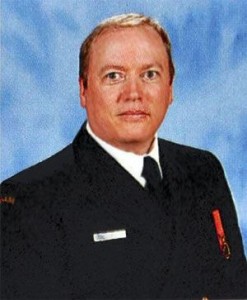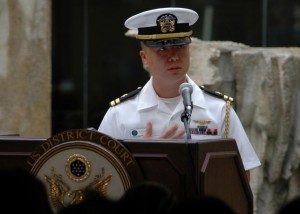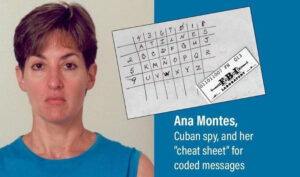A military officer says in this video that when he began spying for the Russian intelligence service, it was “professional suicide” and that “every day since then I die–every day–knowing what I’ve done.” –Jeffery Delisle, 43 years old.
Note his severe emotional distress over discovering his wife had an affair, the betrayal of which he claims triggered his decision to walk into the Russian embassy the same day. As I’ve always said, don’t ignore when your employees go through a divorce or separation. The emotional pain they are going through can cloud judgment and make them do something really stupid like guy did–volunteering to spy for the Russians. Apparently he wanted to commit suicide but didn’t for his kids so instead he committed “professional suicide.”
Watch the videos of his confession and learn more about the case
–
Canadian spy’s confession–Why he spied:
Canadian spy’s confession–How he operated:
Navy spy blames marriage heartbreak for betrayal (CBC News, October 23,2012)
Court documents about the man at the centre of an international espionage embarrassment show that Sub-Lt. Jeffery Paul Delisle attributes his actions, in part, to the breakdown of his marriage.
Delisle, a naval officer stationed in Halifax, pleaded guilty in Nova Scotia provincial court earlier this month to selling military secrets to Russia.
Court documents obtained by CBC News paint a picture of heartbroken man struggling with a failed marriage.
“The love of my life since high school stuck it in my heart. It was, it was really, really, really, really hard,” Delisle told an RCMP interrogator.
“I needed to be spontaneous. Raising kids for 20 years and going through what I went through with my wife, I was, I went through a period where I just decided I want to do it,” he said.
In total, the interrogation lasted close to four hours. After hours of talk, RCMP Sgt. Jim Moffat told the spy the police had copies of his emails to Russia.
“There is no doubt, no doubt on my mind Jeff, that you did transmit classified documents illegally to Russia,” said Moffat.
“I am so dead. I, everyone, my wife that I loved for so long, killed me. Killed me,” said Delisle. “So I committed professional suicide.”
Delisle told Moffat he didn’t do it for the $3,000 a month.
The exhibits show he had access not only to military secrets, but also files ranging from the Canadian Security Intelligence Service and RCMP to the Privy Council Office.
CSIS said it doesn’t know what data on international operations Delisle smuggled out on a thumb drive. . . . . (read more)
63-page confession document (.pdf)
CSIS damage assessment (.pdf)
—–
Canadian navy spy sentenced to 20 years for selling secrets to Russia (Canadian Press, Feb 8, 2013)
Sub-Lt. Jeffrey Paul Delisle has been given a 20-year prison sentence for selling secrets to Russia.
But the judge presiding over the case says the Halifax navy intelligence officer will serve 18 years and five months behind bars because of time he has already served.
Provincial court Judge Patrick Curran said Friday that Delisle “coldly and rationally” offered his services to Russia, who valued his work.
“I think it’s clear by virtue of the fact that the GRU made substantial payments over the years … it clearly considered what he was doing for them to be significant,” Curran said, referring to the Russian intelligence agency.
“You are going to have to make this right, sir, with a substantial period in custody.”
Curran also ordered Delisle to pay a fine of nearly $111,817— the amount of money he collected from his Russian bosses — within 20 years or face two more years in prison. . . .
. . . . Delisle admitted that his treachery began when he walked into the Russian embassy in Ottawa in July 2007 and offered his services for money.
For years, he funnelled classified information to the Russians for monthly payments of about $3,000.
The naval threat assessment analyst said he used floppy discs and memory sticks to smuggle information out of Halifax’s HMCS Trinity, the military all-source intelligence centre on the East Coast.
He then took the information home and copied it into an email address that he shared with his Russian agent so he never had to send the email.
But he came under suspicion after returning in September 2011 from a trip to Brazil, where he met a Russian agent named Victor who told him that he would become a “pigeon” or liaison for all Russian agents in Canada.
Alarms were raised within the Canada Border Services Agency because he had no tan, little awareness of the tourist sites in Rio de Janeiro, three prepaid credit cards, thousands of dollars in U.S. currency and a handwritten note with an email address, the court heard.
Authorities intercepted two messages in January 2012 that Delisle tried to pass on to the Russians, and he was arrested shortly later. . . . (read more)










